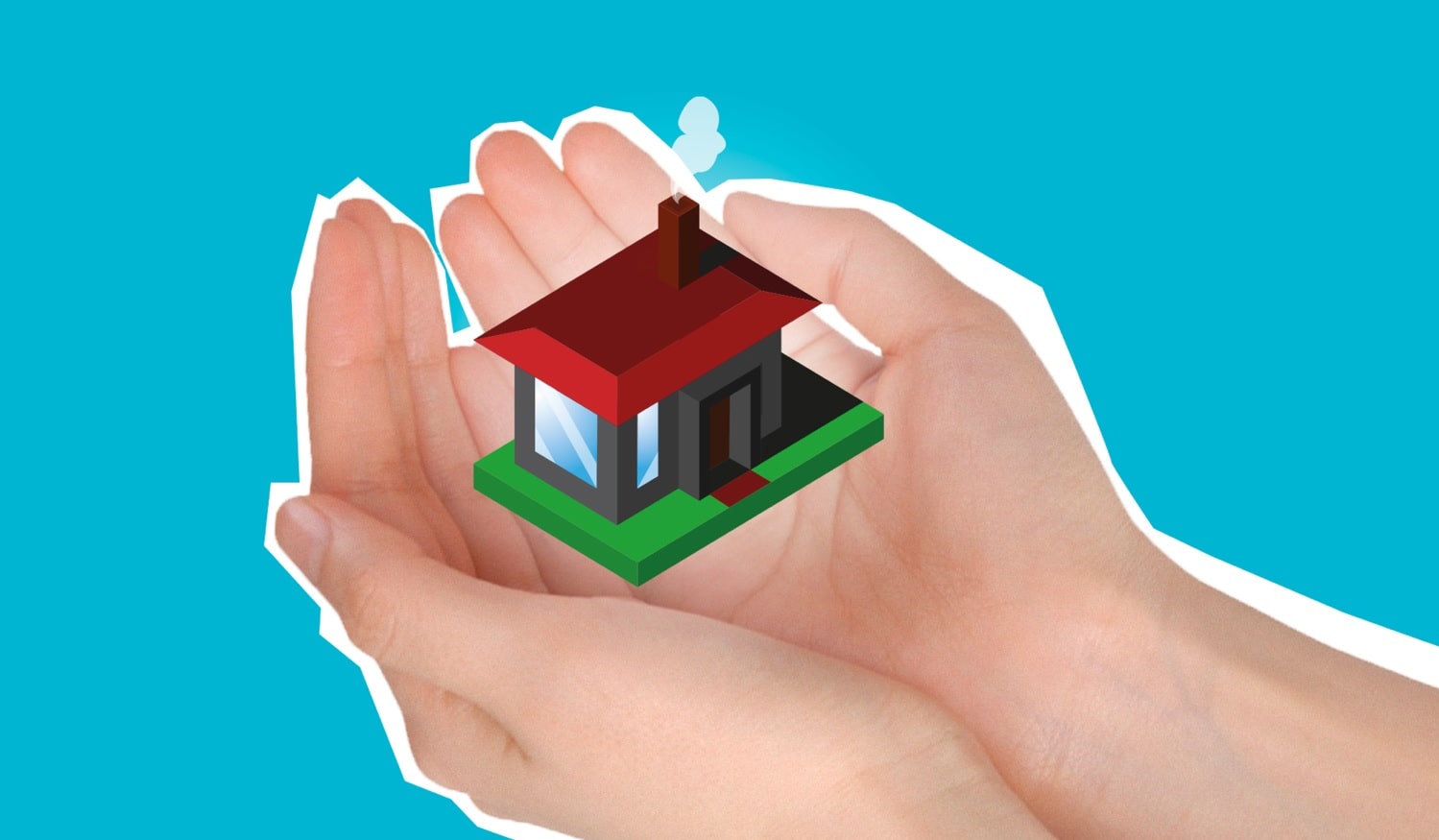Buying a new home is both exciting and frightening. After all, a house is probably the largest purchase you will ever make in terms of size and cost. That’s why it’s so important to understand exactly what you need from your new house. Even if your Connecticut home purchase is a year away, there are still plenty of ways you can jump-start the process.
Really Think About Location
If you’re moving for work, you might not be able to choose exactly where to move as you’ll be limited to cities/towns near your work place. With that said, the average commute is about 27 minutes. Depending on where your job is located, there could be dozens of towns to choose from. And if you’re not familiar with the location, you’ll want to do plenty of research ahead of time. Luckily, there are online resources like City-Data or Niche that can provide you with important information such as:
- Population
- Median home value
- Crime and safety
- Diversity
- Reviews
- Local public and private schools
- Climate
- Cultural activities
Do as much research as you can beforehand especially if you’re moving for a change of scenery. You don’t want to end up somewhere that doesn’t have all of the amenities you need. Sure, living out in the countryside might be nice on paper, but you’ll also have less access to a vibrant nightlife, a variety of food, and cultural institutions. Similarly, you might want a quieter neighborhood in a good school district if you’re raising a family. What town you eventually relocate to in Connecticut depends on your lifestyle and preferences so make sure to write down the most important amenities you will need close to your new home.
Figure Out Your Budget
Before you even start looking for homes you should figure out exactly how much you can afford. House prices have skyrocketed since the start of COVID-19, but there are still some good deals out. If you’re a first time homeowner, there are also some programs that can help reduce the costs.
When determining your budget, remember that your mortgage is just a fraction of your total monthly payment. Some other costs you will need to consider include:
- Property taxes
- Homeowners insurance
- HOA fees (if applicable)
- Utilities
- House maintenance
There are mortgage calculators available online that can estimate your monthly payment ts by factoring in the home price, down payment, loan term, and interest rates. While you’re at it, make sure to get pre-approved for a mortgage. Being pre-approved will give you an idea of what banks will loan out to you and show committed sellers. With that said, don’t take out the biggest loan possible! The recommended down payment is 20%, but nowadays many people put down less and simply pay a monthly fee for property mortgage insurance.
If you’re a first time buyer, you should research local programs. For example, the state of Connecticut offers a down payment assistance program of up to $20,000 as well as closing cost assistance. If you are planning to move to a more rural area, you might be able to take advantage of the USDA rural housing development program which provides low interest rates loans and grants to low income households.
Create a List of Needs For Your House
Looking at all of the houses on the market might be a lot of fun, but an unfocused search can lead to regrets if you don’t know what you want out of a house. Most people live in their home between 6-10 years, so you want to make sure you actually like the place!
Before you start searching, sit down and create a list of what you actually need in a home. For example, you might need three bedrooms to accommodate your family or perhaps you need more than an acre of land because you have dogs. Whatever the case, you want to create a list of non-negotiables. From there, you can then create a nice-to-have list which can include things like walk in closets, multiple bathrooms, garden, etc.
While it might seem tedious, it can help you whittle down your choices so you’re only looking at a handful of options instead of running yourself ragged checking out homes that don’t fit your needs.
Work With a Real Estate Agent or Realtor
Sure, you might be able to find houses for sale through various sites, but real estate agents can get you access to pre-market listings and can negotiate better deals. Around 87 percent of homebuyers work with an agent. After all, a good real estate agent or realtor can help narrow your search, get the most of our budget, and give you a good understanding of the area and neighborhood.
You might be wondering if there’s a difference between a real estate agent and a realtor and there is:
- Real estate agents are professionals that take and pass licensing exams to do business in your state
- Realtors are real estate agents that are also members of the Association of Realtors. Not only do they hold all the necessary licenses, they also adhere to a strict code of ethics and have a clean professional record.
Either option can help you during your house hunt. Just make sure that the person you plan on working with is licensed. You can also ask them for some references before committing to a specific person.
Read Listings Carefully
Seller’s obviously want to put their house in the best light so that they can sell their home at a high price. That’s why most real estate listings will never say if a house is in need of major renovations or repairs. Instead, they’ll rely on terms like “fixer upper,” or “work in progress” to convey that information. In some cases, you might even see the words “as is” in the listing, which means the seller isn’t going to make any repairs before leaving. Home renovations can cost a lot of money and time. If that’s not something you’re interested in, then look out for these words!
Besides this, some other words to look out for when reading listings include:
- Charming – it might sound nice, but usually this word means that the house is small, old, and/or dark
- Quaint/Cozy – similar to charming, this word means the house and rooms are small
- Use of exclamation points – the more exclamation points there are, the more problems the house has
- Fantastic – a non-descriptive term meaning the house doesn’t really have anything of interest/notable
- Won’t last/Hurry – usually for lower quality homes hoping to get people to pay a higher price for a home that probably should sell for lower! They want to create a sense of urgency so people move quickly
Consider Short Sales and Foreclosures
It’s a seller’s market in most of the United States so if you’re coming up empty in your search or getting outbid for all the homes you want, you might want to look into short sales or foreclosures.
- Short sales – initiated by the owner to avoid foreclosure where the homeowner will sell the property for less than what they owe on the mortgage. Sellers are very motivated and willing to negotiate
- Foreclosure – the house is now in possession by a lender as the property owner has stopped making monthly payments. In many cases the house is abandoned or left in disrepair so is sold as-is. These houses are sold for well below market value as the lender wants to recoup at least some of the money lost.
In both cases, you can find homes for significantly lower than your standard houses. However, you will have to put in more effort to find them as they usually are only listed on specific sites such as banks, government owned listings, etc. It can also take quite a long time to close on these properties, though a real estate agent can help with the process.
Ready for Your New Home?
Finding your dream CT home takes time and preparation, but it’s well worth the effort! Once you’re ready to move into your new place, make sure to hire trusted CT movers to help you. After all, you want to make sure all your precious belongings arrive in their new home in one piece.
FAQ
How do I view homes if I don’t live in the area?
While it might cost some money, you should try to view all homes you’re interested in in-person. If you have friends in the area, see if you can stay at their house for a week or so. Otherwise, check out local AirBnBs. Ideally, you could stay for around a month to check out the area, but that’s not always possible. If that’s the case, check out the area via Google Maps and do your research.
How much do long distance movers cost?
It depends on how much and how far away you’re moving. The more stuff and further away you’re going the more expensive it is. With that said, the average long distance move costs around $4,800.
What happens if I change my mind about buying a house?
You can back out of a house offer so long as you do so before closing and before signing the purchase agreement. It’s always good etiquette to let the seller know as soon as possible if you decide to back out so they can reach out to another interested buyer.






